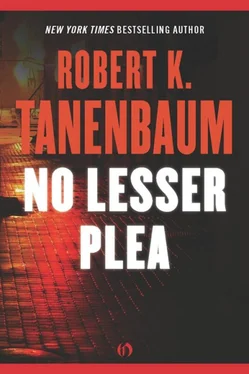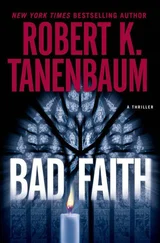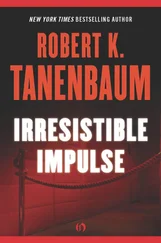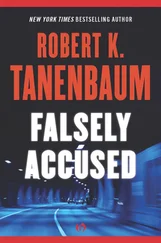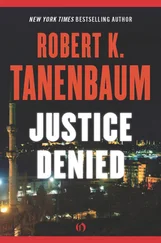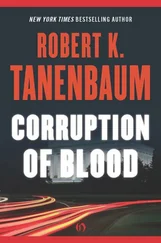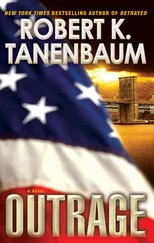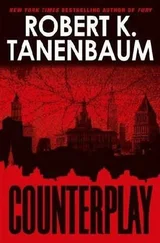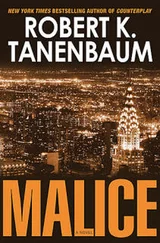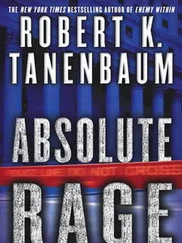Robert Tanenbaum - No Lesser Plea
Здесь есть возможность читать онлайн «Robert Tanenbaum - No Lesser Plea» весь текст электронной книги совершенно бесплатно (целиком полную версию без сокращений). В некоторых случаях можно слушать аудио, скачать через торрент в формате fb2 и присутствует краткое содержание. Год выпуска: 2011, ISBN: 2011, Издательство: Open Road Integrated Media, Жанр: Криминальный детектив, на английском языке. Описание произведения, (предисловие) а так же отзывы посетителей доступны на портале библиотеки ЛибКат.
- Название:No Lesser Plea
- Автор:
- Издательство:Open Road Integrated Media
- Жанр:
- Год:2011
- ISBN:978-1-4532-0994-3
- Рейтинг книги:4 / 5. Голосов: 1
-
Избранное:Добавить в избранное
- Отзывы:
-
Ваша оценка:
- 80
- 1
- 2
- 3
- 4
- 5
No Lesser Plea: краткое содержание, описание и аннотация
Предлагаем к чтению аннотацию, описание, краткое содержание или предисловие (зависит от того, что написал сам автор книги «No Lesser Plea»). Если вы не нашли необходимую информацию о книге — напишите в комментариях, мы постараемся отыскать её.
No Lesser Plea — читать онлайн бесплатно полную книгу (весь текст) целиком
Ниже представлен текст книги, разбитый по страницам. Система сохранения места последней прочитанной страницы, позволяет с удобством читать онлайн бесплатно книгу «No Lesser Plea», без необходимости каждый раз заново искать на чём Вы остановились. Поставьте закладку, и сможете в любой момент перейти на страницу, на которой закончили чтение.
Интервал:
Закладка:
Barlow jumped to his feet. “Oh, now the pig shows his true colors. You want to take me to jail? Go right ahead. I been in jail before.” He held his hands out rigidly, wrists together. “Go head, muthafucka! Take me in! Hey, people! Uncle Tom is gonna arrest my black ass. If I get shot trying to escape, remember his face.”
There were about twenty people in the large room, and at Barlow’s outburst they stopped what they were doing and began to move ominously toward Barlow’s desk, making belligerent noises.
Dunbar said, “Oh, for cryin’ out loud, Barlow! Get real!” Dunbar knew he couldn’t afford to start trouble. The crowd was obviously not going to let him take Barlow in without a scuffle, and if he called for backup, somebody was going to ask what he was doing there in the first place, which meant he would either have to lie, or get chewed out for wasting time on a dead case.
He snorted in disgust and pushed his way past the growling revolutionary cadres and out of the main office. He heard the crowd cheering as he swung past the glass door.
The detective loitered despondently in the bookstore for a while. There was a good deal on the collected works of Kim II Sung in twenty-five volumes, but Dunbar was able to restrain himself. He had just about become resigned to sitting in his car on Boynton Street until Elvis should decide to show, when he happened to look back into the office.
Everyone had gone back to work after their revolutionary victory. Barlow was dialing a number, reading it out of a small, black book. He looked around furtively as he waited for a connection. He was on the phone for no more than a few seconds of conversation. Then he hung up, put the book in a desk drawer and locked it.
Dunbar thought that was funny. Old Jim Barlow did not seem like a terse man. Probably talk your ear off about the oppressed working classes while ordering a cup of coffee. On the other hand, if he were telling somebody that the cops were after him and he thought his phone was tapped, he might be brief for once.
Dunbar really didn’t want to sit on Boynton Street. Which is why he waited until the place cleared out that night, broke in, picked the desk lock, and copied down all the names, addresses, and phone numbers in Barlow’s little book. All of the thirty-two names were nicknames or first names and initials-Chili T., Joe Q., Chingo Ray, Che M., and like that. Very conspiratorial. As he looked over the list, something almost rang a bell in Dunbar’s head. He looked at the list for several minutes trying to make something happen, and failing. Then he locked everything up again and went home to Queens.
The next morning, early, Dunbar went to Centre Street to let Karp know what he had found. Karp was in court. As he left Karp’s office, he ran into Marlene Ciampi in the hallway. As soon as he saw her, the bell finally rang.
“Hey, Champ. What does the name ‘Chingo Ray’ mean to you?”
“Chingo Ray? A.K.A. Charles Hargreaves, A.K.A. Charlie the Bomber. He’s the guy who got blown up in the townhouse. I’m prosecuting his buddies. Why do you ask?”
“Oh, nothing much. His name turned up in an address book I picked up on uptown. He’s waxed, you say?”
“A probable. We know he was at the townhouse the night it blew up. They recovered a male body-in smithereens-from the wreckage. It could be him. On the other hand, he’s a slippery bastard and smart as hell. It’s not beyond him to have set up the explosion and leave us with a plausible stiff, to cover his tracks. Also, the bomb that blew away that judge’s secretary. Very similar to letter bombs Charlie made in the past. So … tell me about this address book. Where did you get it?”
“Just stumbled over it, is all. Look, Champ. I gotta go detect. Catch you later.”
As he walked to his car, Dunbar thought hard. He had asked Barlow about Elvis. The call made right after he left Barlow must have been triggered by his questions. He didn’t think Barlow was calling out for a pizza; he was calling somebody in the book. Elvis’s name was not in the book, therefore he was calling somebody connected with Elvis. Thirty-two addresses to check out. He decided to start with the late Chingo Ray, resident, according to his little list, at 351 Avenue A.
Nobody answered his knock at the apartment on Avenue A. He slipped the lock and went in, pistol drawn. The place looked like a typical East Village crash-mattresses on the floor, a sleeping bag, filthy sheets, garbage bags full of rotting stuff, graffiti sprayed on the walls, political and head-shop posters. A cheap table and chair stood in the center of the main room. The apartment was deserted, but Dunbar was delighted to see evidence of hurried flight-drawers half open, clothes strewn around, a pot of coffee, and dirty dishes in the kitchen sink.
Dunbar put his gun away and checked out the main room. The floor around the table was covered with short snippings of bell wire in different colors. On the table itself were several large manila envelopes. These were stamped and postmarked from different cities- Berkeley, Chicago, Detroit. Oddly, they were not addressed. Dunbar poked around some more. By the stinking trash bags he found more wire, some thin springs and a crumpled package of peel-off labels. It looked like somebody was going through a lot of trouble to create envelopes that could be made to look like they were coming from different places. Dunbar felt a chill run through his body. It had just occurred to him why somebody might want to take such trouble. He grabbed the envelopes and ran out of the apartment without bothering to close the door.
It took him nearly an hour to drive up to Boynton Street, running lights, cutting people off, pounding his fist on the wheel, and cursing every vehicle in front of him. His most vehement curses were reserved for himself. With the wisdom of hindsight it was clear that, once Elvis’s dwelling had been located, someone should have watched it continually thereafter. Now, for some reason, Elvis had formed an association with terrorists. Who could have figured it? Stick-up artists don’t usually move in political circles. The more Dunbar thought about it, the crazier it became.
He screeched to a stop at 563 Boynton, flung himself out of the car, and raced up the stairs. At the Higgs apartment he yanked out his pistol and used it to pound on the door.
When Vera Higgs opened the door a crack, Dunbar threw his weight against it, knocking her to the floor. He stormed through the apartment, kicking through doors, tossing the bed, yanking out drawers. Nothing-no Elvis, no envelopes.
He returned to the living room. The TV was on and the child sat on the floor in front of it. Vera Higgs was just climbing to her feet.
“You knock me down. You din hafta.”
“Right, sorry, it was an accident. Look, Vera, where’s Preston? I’m not fooling now. I got to know where he is.”
Sulkily, she walked slowly to the ratty couch and sat down.
“He ain’t here.”
“Goddamn, I know that! Where is he?”
“I don know. He lef.”
“When? When did he leave?”
“Bout an hour, somethin’ like that.”
“Oh, Christ! Where to?”
“He din say. He never tell me.”
That figured. Dunbar pulled one of the manila envelopes out of his jacket pocket and held it up.
“Vera, did he have an envelope like this?”
“I don have to tell you no thin’. He say, you come back here, I don have to tell you nothin’.”
Dunbar gave a strangled cry. He went over to the little boy, picked him up, and put him on the couch next to his mother. Then he went over to the TV and pointed his pistol at “Lust for Life.” He cocked the hammer.
“Lady, you don’t tell me what I want to know, I’m gonna waste your TV. I swear it!” Dunbar shouted. The child began to blubber.
Читать дальшеИнтервал:
Закладка:
Похожие книги на «No Lesser Plea»
Представляем Вашему вниманию похожие книги на «No Lesser Plea» списком для выбора. Мы отобрали схожую по названию и смыслу литературу в надежде предоставить читателям больше вариантов отыскать новые, интересные, ещё непрочитанные произведения.
Обсуждение, отзывы о книге «No Lesser Plea» и просто собственные мнения читателей. Оставьте ваши комментарии, напишите, что Вы думаете о произведении, его смысле или главных героях. Укажите что конкретно понравилось, а что нет, и почему Вы так считаете.
